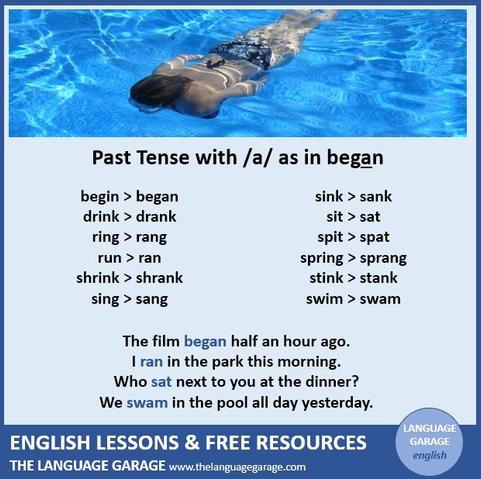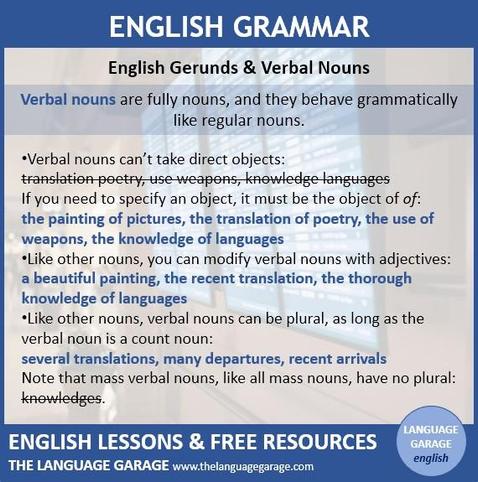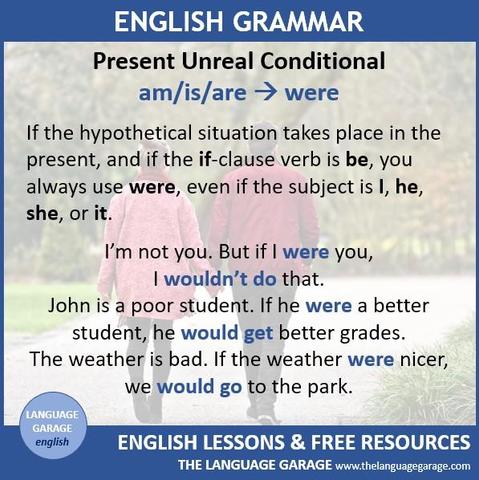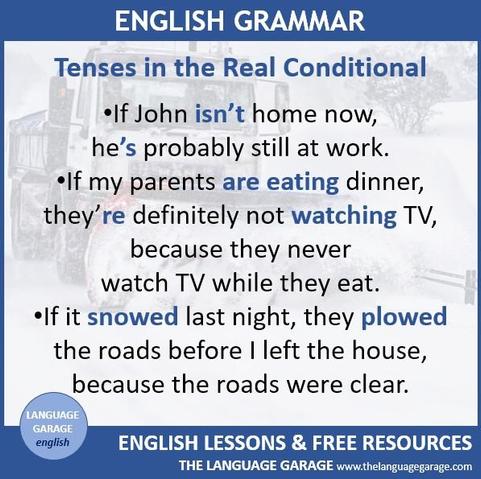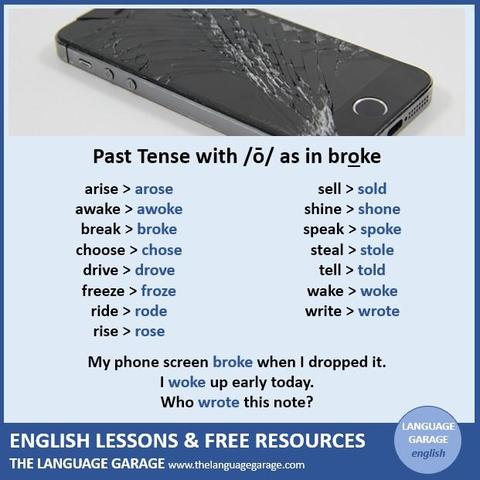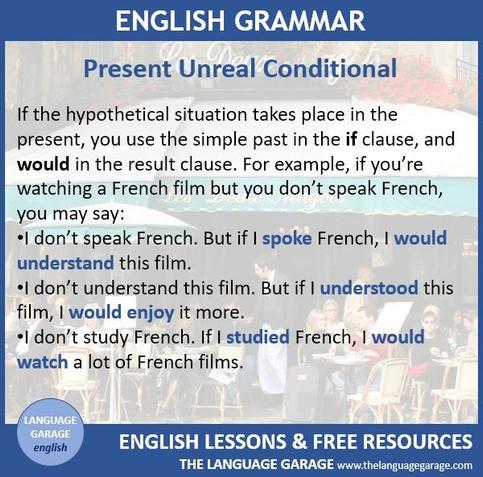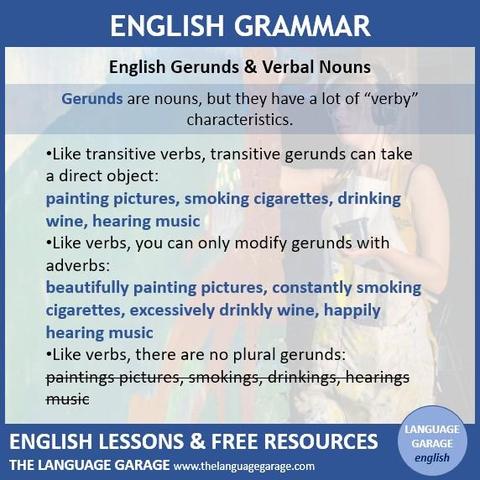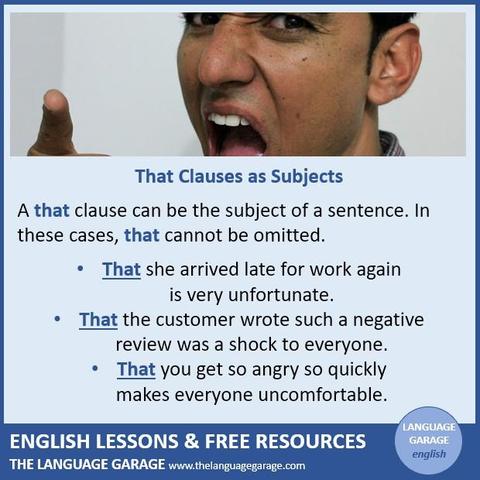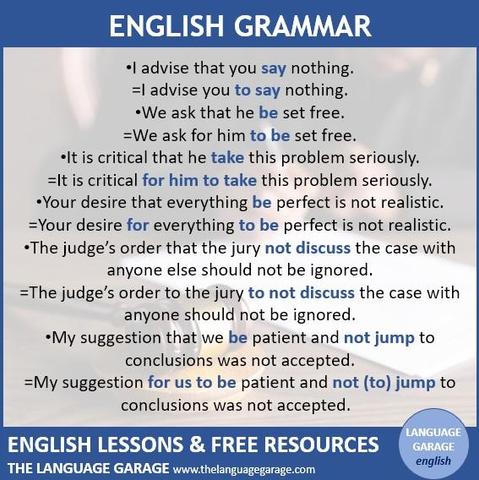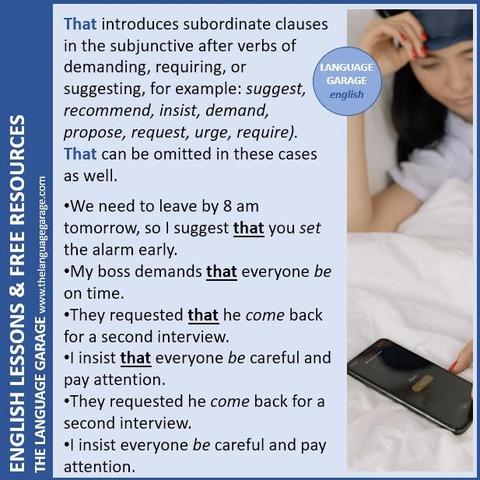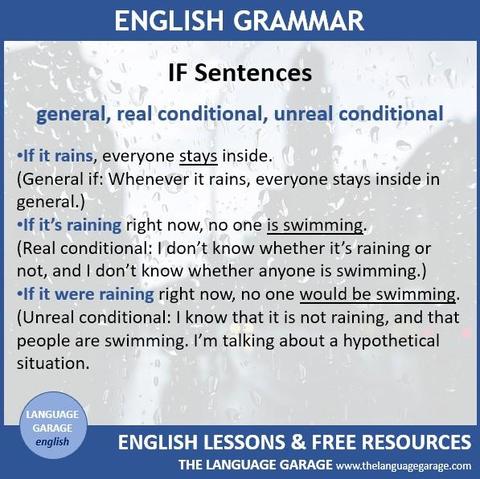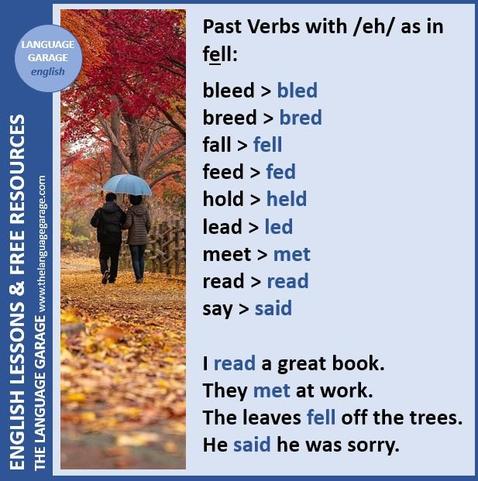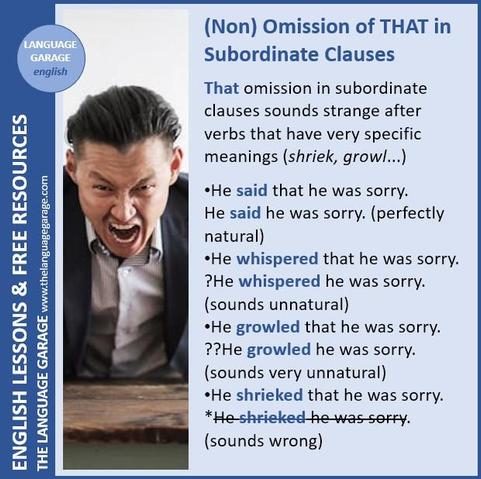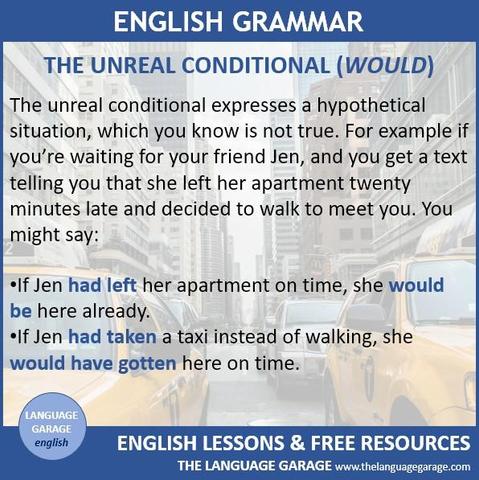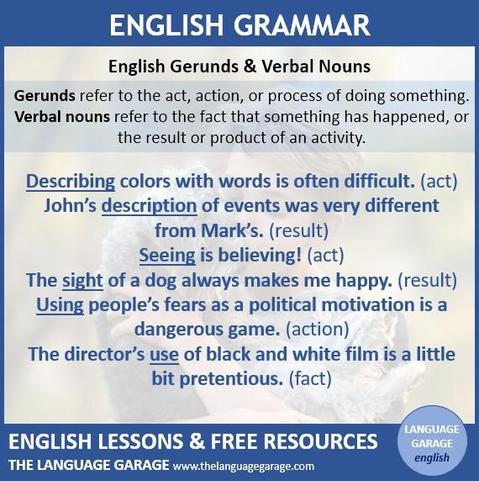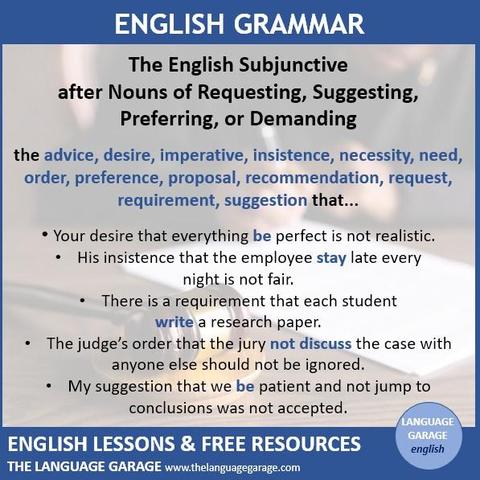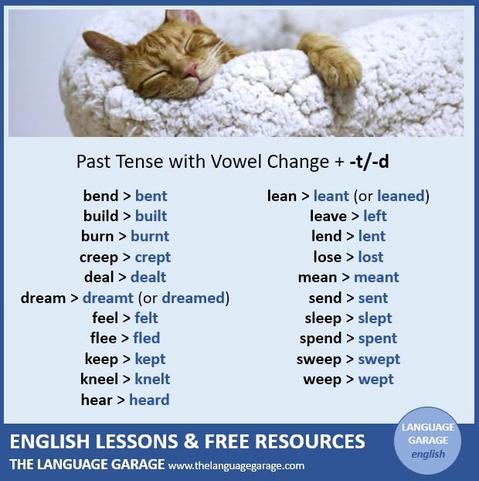Some common #English strong verbs form the past with /ah/ as in swam, sang, ran, sank, drank. #EnglishGrammar #English Verbs #ESL #EFL #EAL #inglés #영어 #anglais #英语 #英語 #inglese #अंग्रेज़ी #inglês #angielski. Learn more here: https://thelanguagegarage.com/english-simple-past/
#EnglishGrammar
Some common #English strong verbs form the past with /o/ as in sold, told, woke, wrote, drove, chose, broke. #EnglishGrammar #English Verbs #ESL #EFL #EAL #inglés #영어 #anglais #英语 #英語 #inglese #अंग्रेज़ी #inglês #angielski. Learn more here: https://thelanguagegarage.com/english-simple-past/
Gerunds are nouns that have many verb-like characteristics, like taking a direct object. #EnglishGrammar #esl #efl #inglés #영어 #anglais #英语 #英語. #Learn with us: https://thelanguagegarage.com/english-gerunds-and-verbal-nouns/
#EnglishGrammar: THAT can introduce subject noun clauses. It cannot be omitted. That she left was a surprise to everyone. #esl #efl #inglés #영어 #anglais #英语 #英語 #inglese #अंग्रेज़ी #inglês #angielski. https://thelanguagegarage.com/uses-of-that-in-english/
Everyone had better finish the project on time! #English #EnglishGrammar #Subjunctive. #esl #efl #inglés #영어 #anglais #英语 #英語. #Learn with us: https://thelanguagegarage.com/the-english-subjunctive/
Since the subjunctive sounds formal, English speakers often use alternatives in everyday speech. #English #EnglishGrammar #Subjunctive. #esl #efl #inglés #영어 #anglais #英语 #英語. #Learn with us: https://thelanguagegarage.com/the-english-subjunctive/
#EnglishGrammar: THAT introduces clauses in the subjunctive after verbs like require, demand, suggest, insist, and propose. #esl #efl #inglés #영어 #anglais #英语 #英語 #inglese #अंग्रेज़ी #inglês #angielski. https://thelanguagegarage.com/uses-of-that-in-english/
If sentences can be general, real, or unreal. #English Real Conditional. #EnglishGrammar #ESL, #EFL, #inglés #anglais #英语 #英語 #영어 Learn more: https://thelanguagegarage.com/english-real-conditional/
I before E except after C, or when sounds like an A as in Neighbor and Weigh.
Also, since I am being all bitchy, the possessive of "it" has no apostrophe.
Some common #English strong verbs form the past with /eh/ as in fell, fed, held, read, said. #EnglishGrammar #English Verbs #esl #efl #inglés #영어 #anglais #英语 #英語 #inglese #अंग्रेज़ी #inglês #angielski. Learn more here: https://thelanguagegarage.com/english-simple-past/
#EnglishGrammar: Omitting THAT sounds strange or wrong after verbs with very specific meanings (shriek, howl, grumble, etc.) #esl #efl #inglés #영어 #anglais #英语 #英語 #inglese #अंग्रेज़ी #inglês #angielski. https://thelanguagegarage.com/uses-of-that-in-english/
The #English Unreal Conditional with WOULD expresses a hypothetical (unreal) situation. #EnglishGrammar #ESL, #EFL, #inglés #anglais #英语 #英語 #영어 Learn more: https://thelanguagegarage.com/english-unreal-conditional/
Gerunds refer to the act of doing something. Verbal nouns refer to the fact or result. #EnglishGrammar #esl #efl #inglés #영어 #anglais #英语 #英語. #Learn with us: https://thelanguagegarage.com/english-gerunds-and-verbal-nouns/
The subjunctive is used after nouns of requesting, suggesting, preferring or demanding. #English #EnglishGrammar #Subjunctive. #esl #efl #inglés #영어 #anglais #英语 #英語. #Learn with us: https://thelanguagegarage.com/the-english-subjunctive/
#EnglishGrammar: THAT can be omitted when it introduces most subordinate clauses after common verbs. #esl #efl #inglés #영어 #anglais #英语 #英語 #inglese #अंग्रेज़ी #inglês #angielski. https://thelanguagegarage.com/uses-of-that-in-english/
Several common #English strong verbs form the past with a vowel change and -d or -t. #EnglishGrammar #English Verbs #esl #efl #inglés #영어 #anglais #英语 #英語 #inglese #अंग्रेज़ी #inglês #angielski. Learn more here: https://thelanguagegarage.com/english-simple-past/
